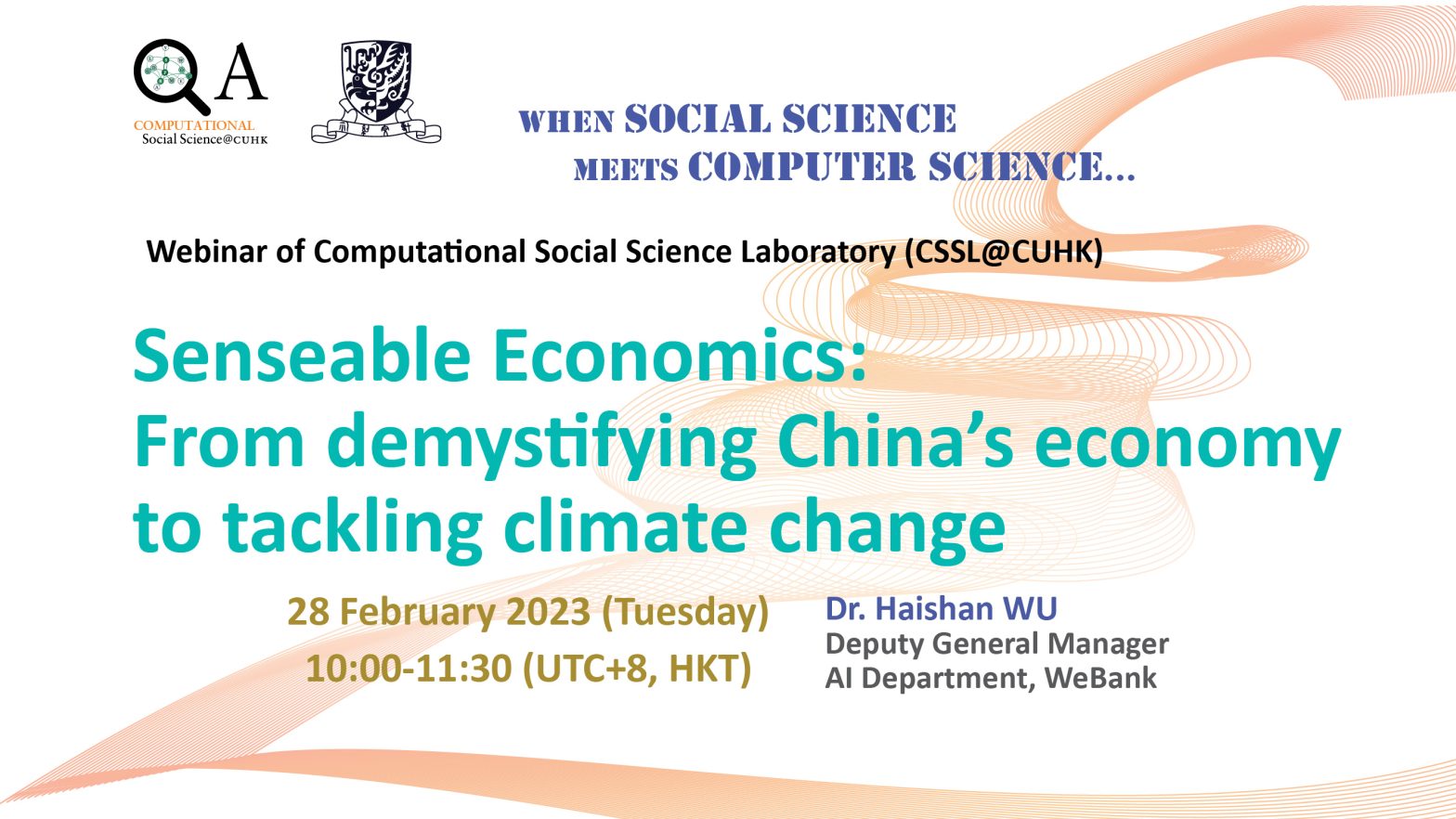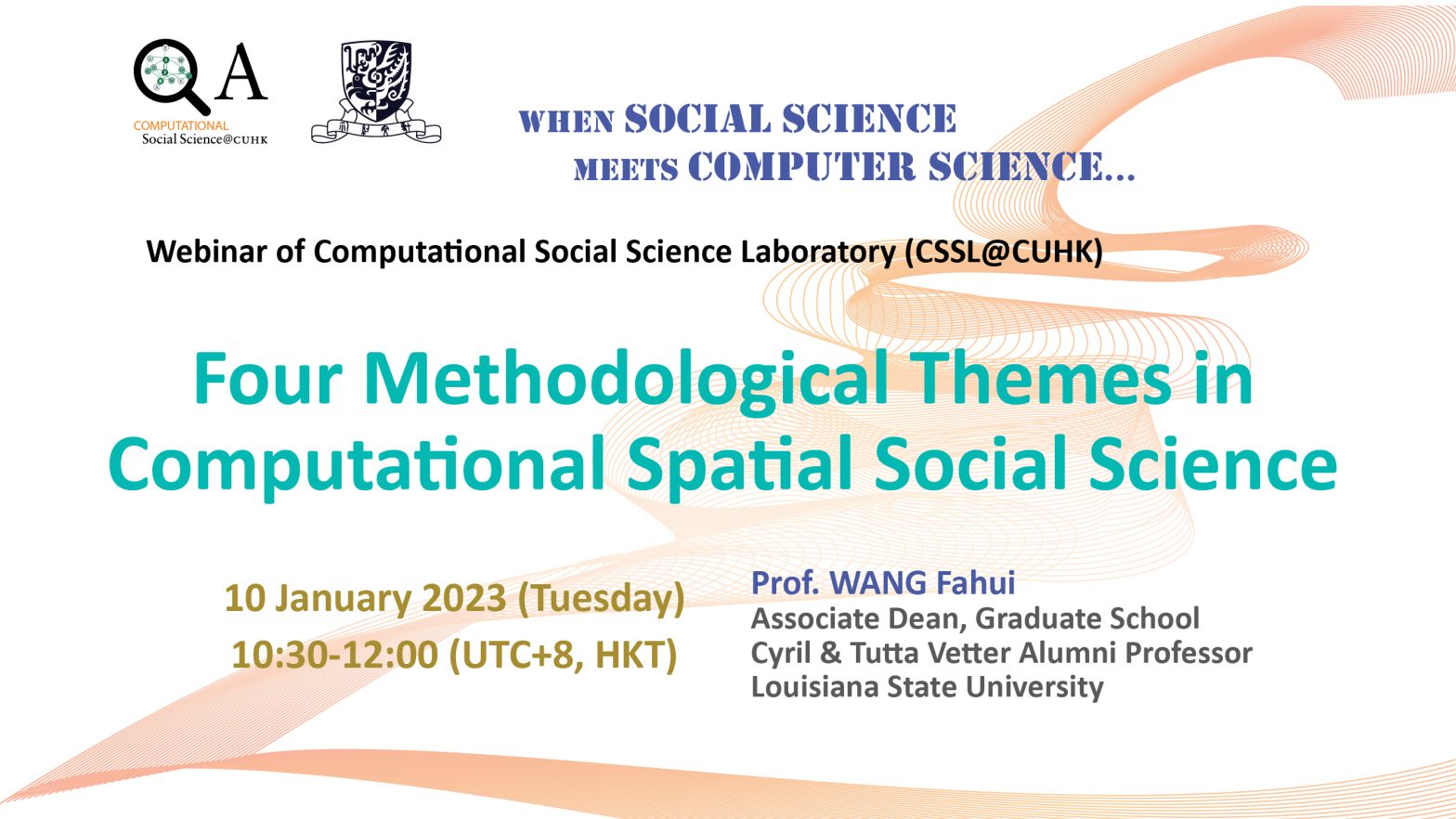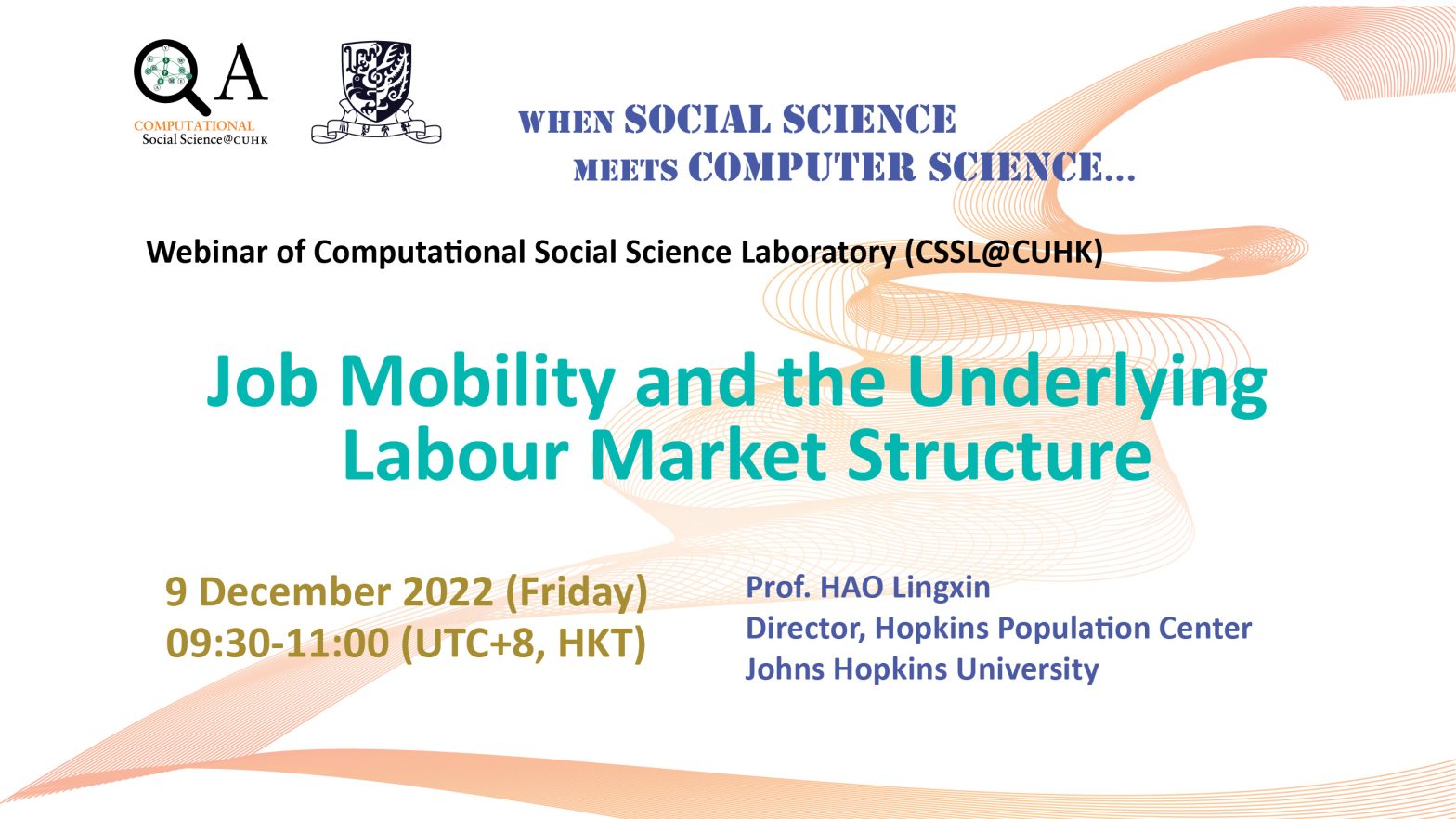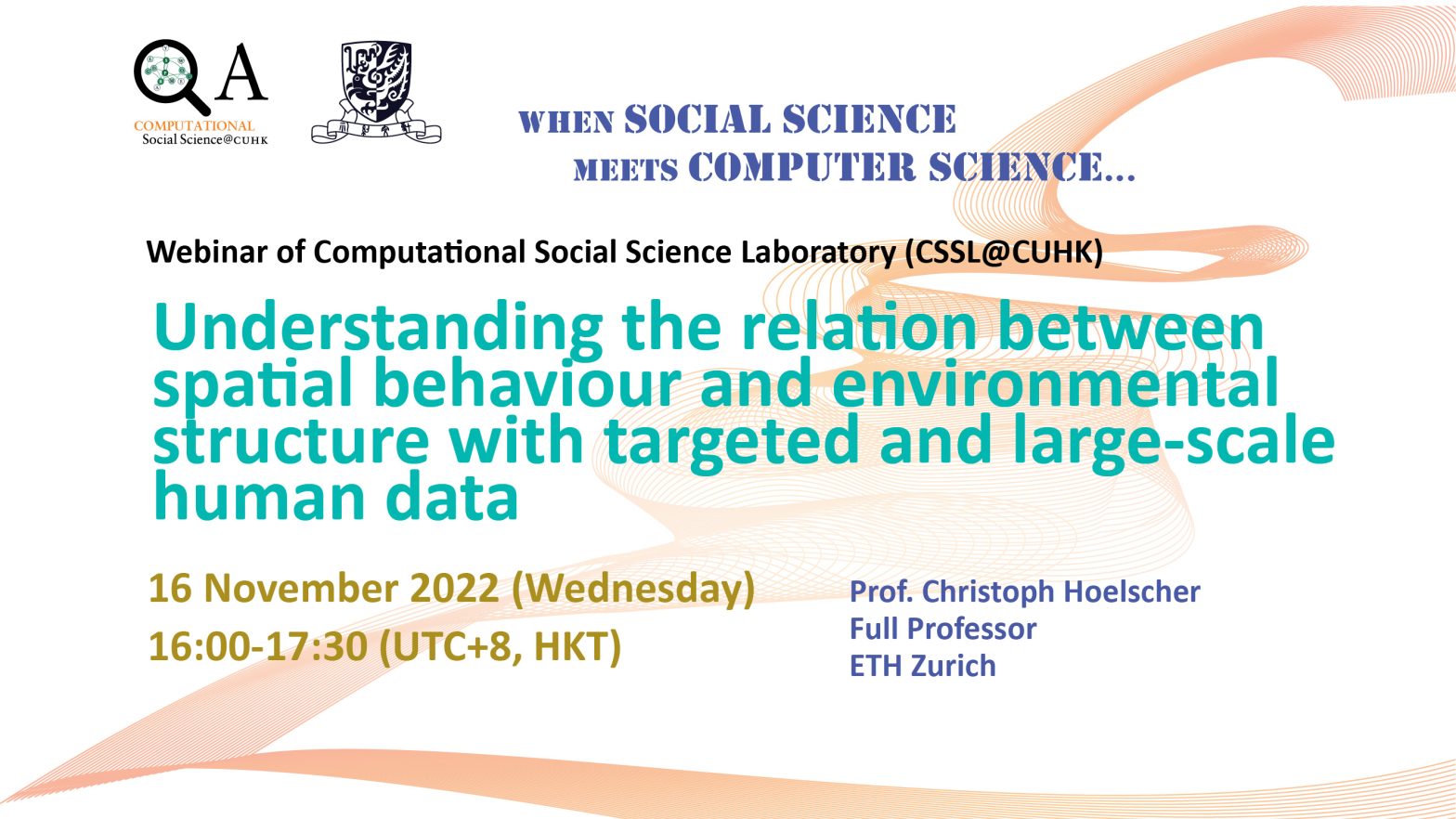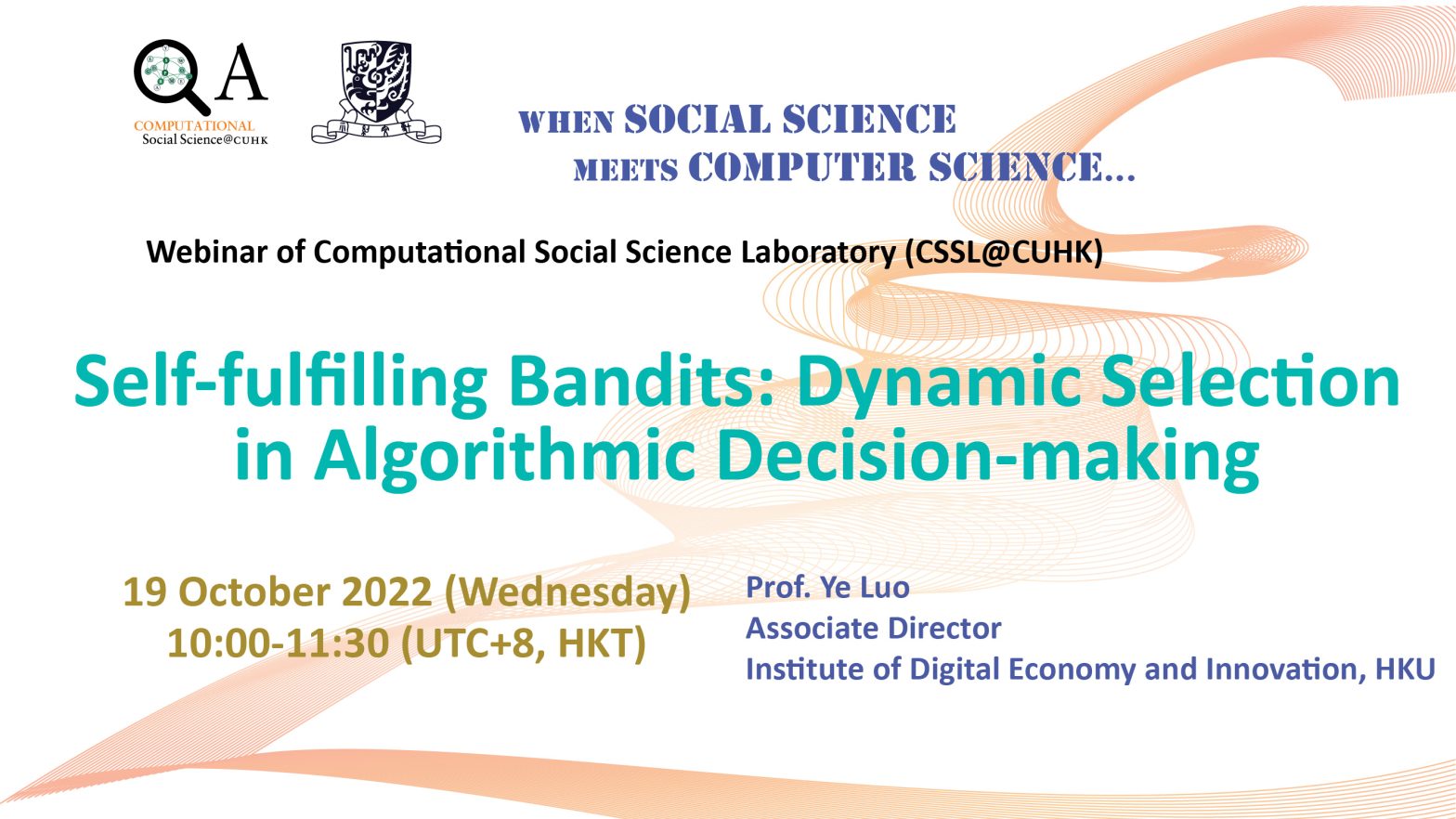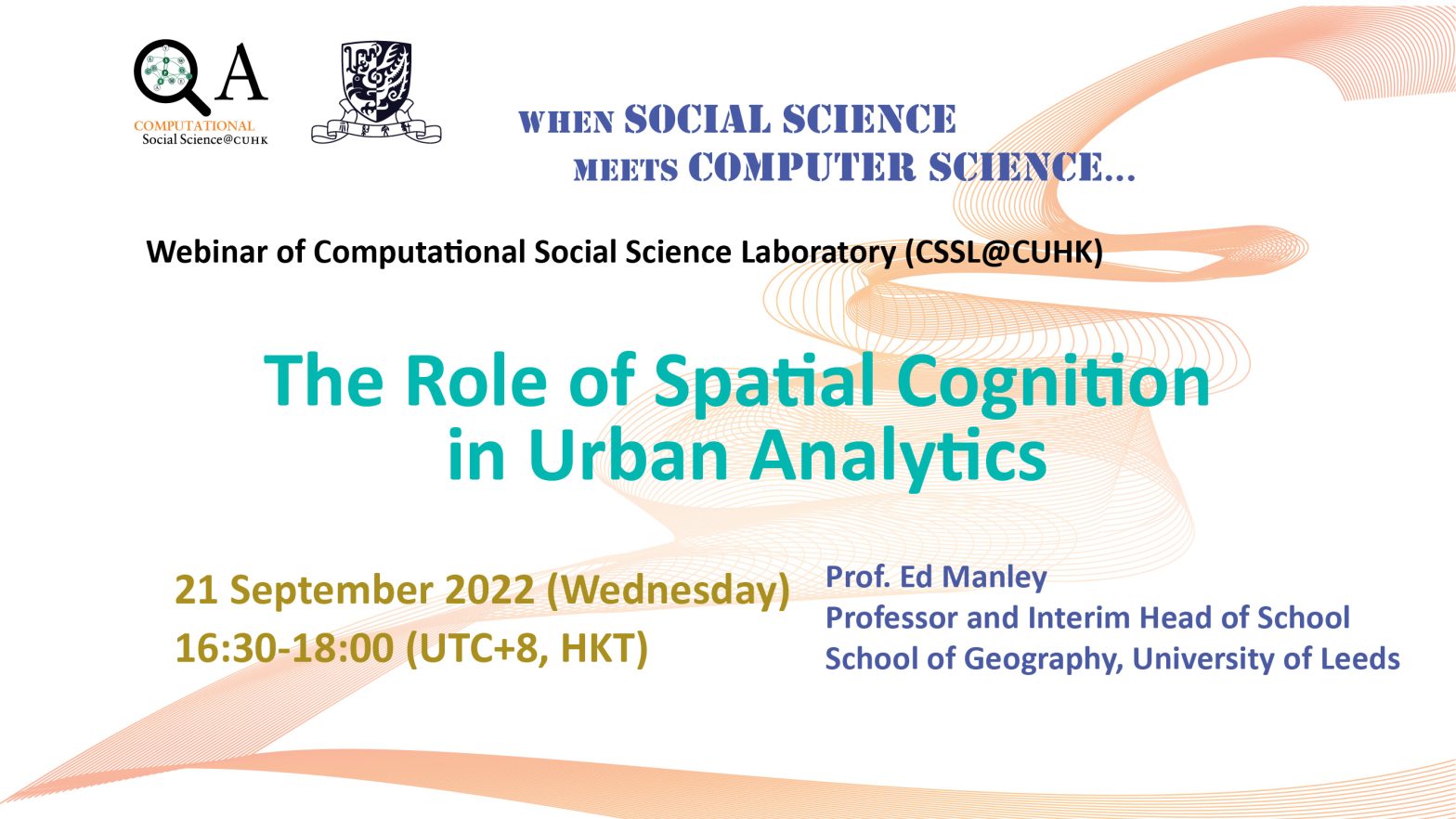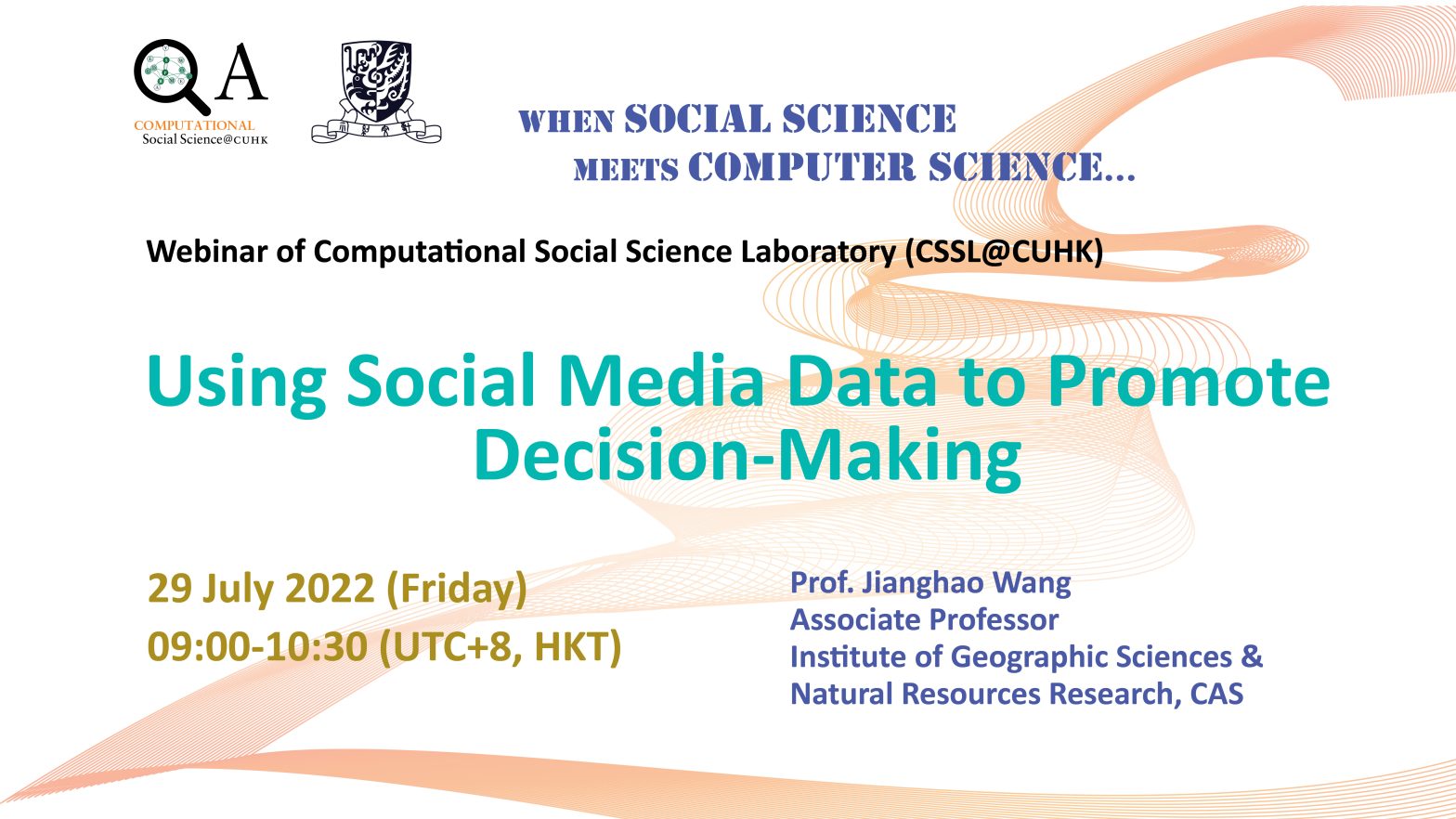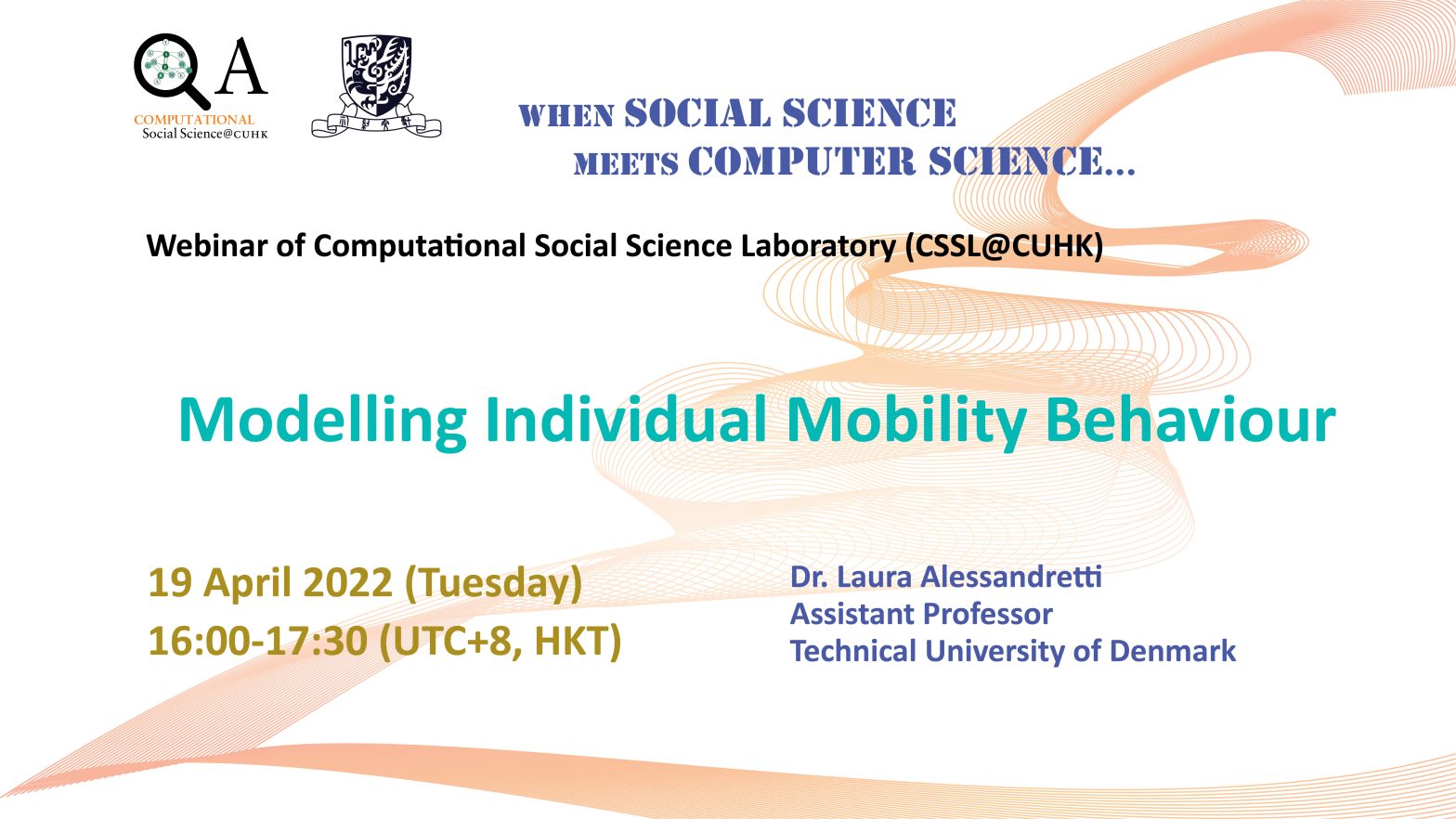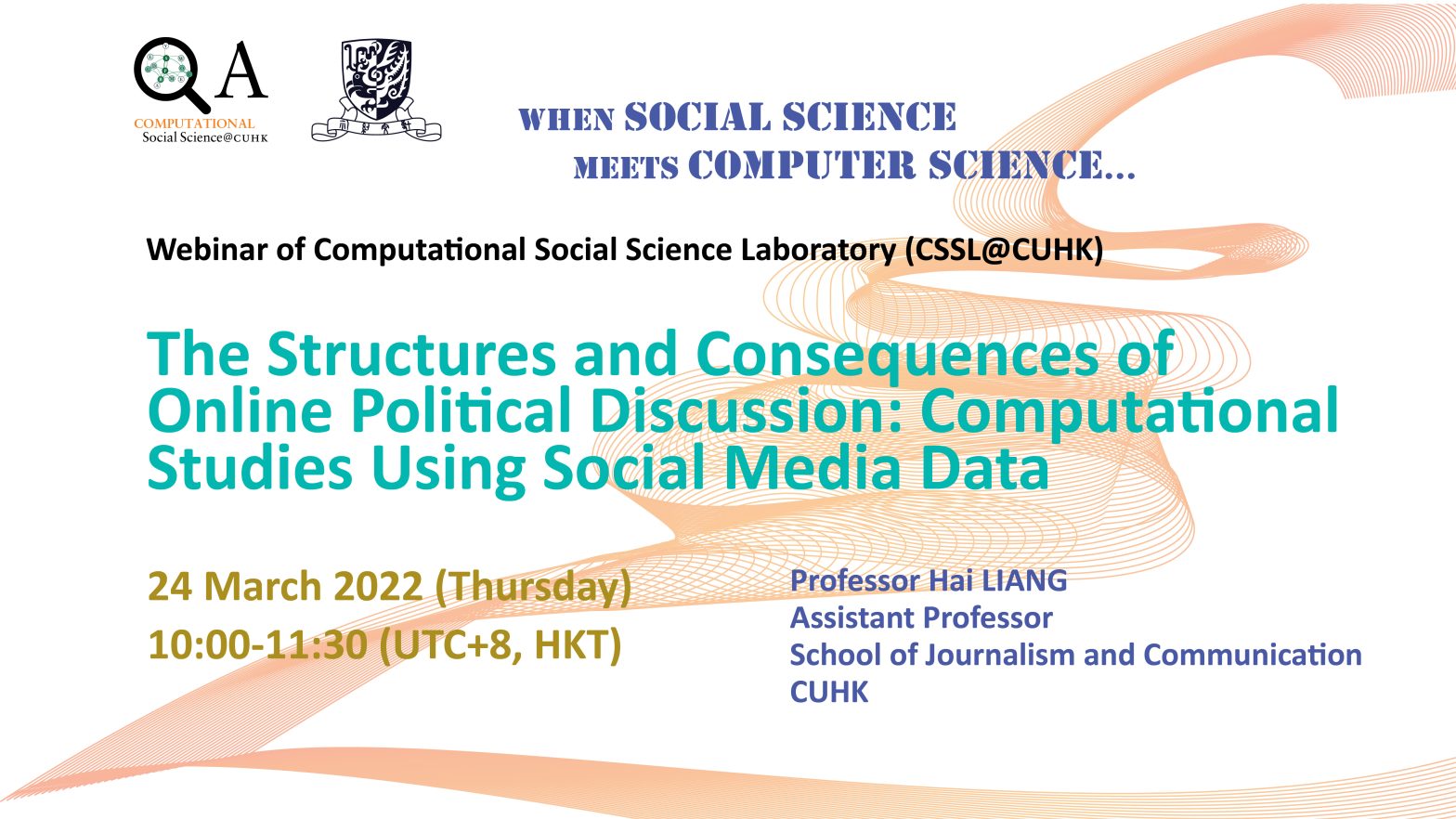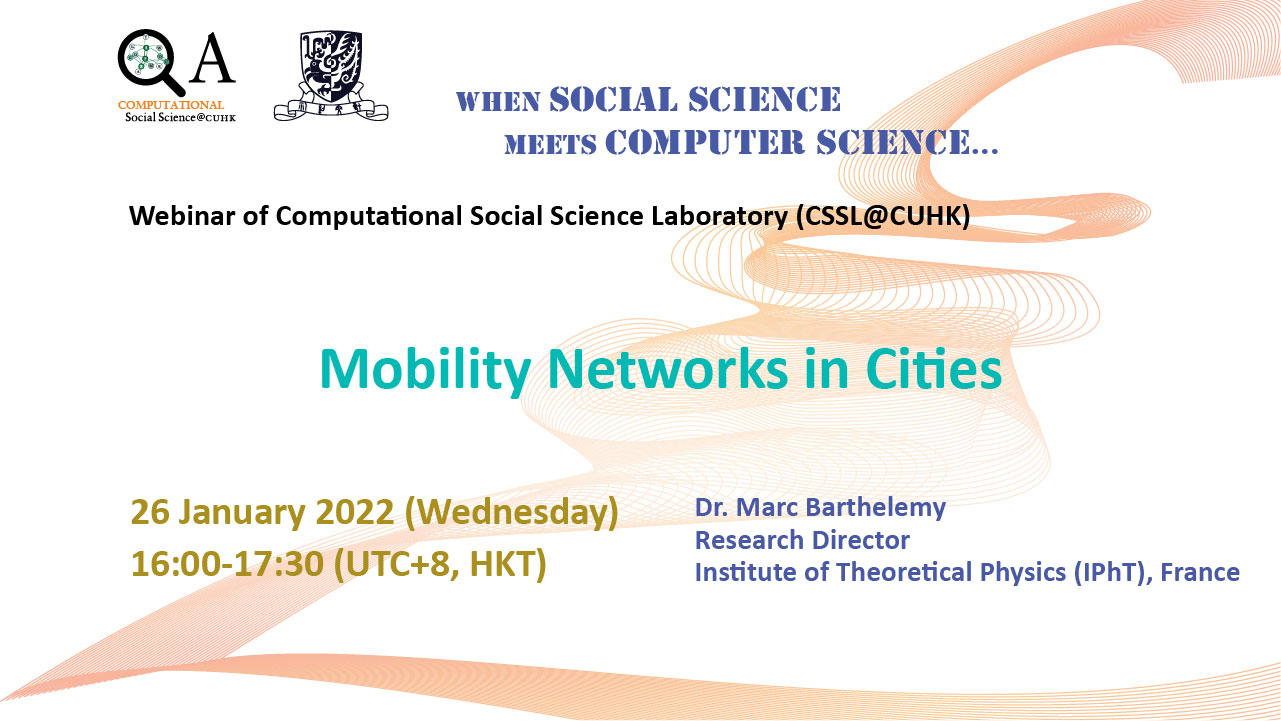Abstract: Sensors are ubiquitous in our daily life, from smartphones, wearable devices, internet of things, micro-satellites to self-driving cars in the future. We propose a new concept named Senseable Economics, which is about sensing the real-time dynamics of economic system by analyzing massive sensor data. In this talk, we will show how we use this… Continue reading Senseable Economics: From demystifying China’s economy to tackling climate change
Category: Monthly Webinars
Four Methodological Themes in Computational Spatial Social Science
Abstract: This talk outlines four methodological themes in spatial analytics with broad applications in social sciences and public policy, all grouped under the umbrella of “Computational Spatial Social Science”. Spatial accessibility measures the relative ease by which the locations of activities or services can be reached, and serves as a major matric for location advantages.… Continue reading Four Methodological Themes in Computational Spatial Social Science
Job Mobility and the Underlying Labour Market Structure
Abstract: To link observed job mobility to the life chances of workers, this talk develops the notion of job mobility zone to describe the underlying labour market structure. Characterising jobs by occupations within industries, this talk models individual workers’ positions in the labour market revealed by their job mobility and discerns job mobility zones that… Continue reading Job Mobility and the Underlying Labour Market Structure
Understanding the relation between spatial behaviour and environmental structure with targeted and large-scale human data
Abstract: For the built environments to support human needs in a sustainable fashion, it is essential to understand the cognitive, emotional, and behavioural patterns of its users. Virtual Reality and video-game based experiments can provide a broad range of empirical data that supports the development of theoretically grounded, cognitive agent-based models of occupancy, movement, and… Continue reading Understanding the relation between spatial behaviour and environmental structure with targeted and large-scale human data
Self-fulfilling Bandits: Dynamic Selection in Algorithmic Decision-making
Abstract: This talk identifies and addresses dynamic selection problems that arise in online learning algorithms with endogenous data. In a contextual multi-armed bandit model, we show that a novel bias (self-fulfilling bias) arises because the endogeneity of the data influences the choices of decisions, affecting the distribution of future data to be collected and analysed.… Continue reading Self-fulfilling Bandits: Dynamic Selection in Algorithmic Decision-making
The Role of Spatial Cognition in Urban Analytics
Abstract: Spatial navigation is a complex cognitive process, involving structures in the brain developed over thousands of years of evolution. Yet in urban science we often neglect the role of spatial cognition in shaping mobility behaviour, making simple assumptions about travel choices. In this talk, we explore the growing evidence around human navigation in cities,… Continue reading The Role of Spatial Cognition in Urban Analytics
Using Social Media Data to Promote Decision-Making
Abstract: Social media is becoming a crucial communication tool for information generation, dissemination, and consumption. Can evidence drawn from social media enhance public services and inform public policy development? In this talk, we present studies using billions of geotagged social media posts and state-of-the-art natural language processing techniques to provide valuable insights for researchers and… Continue reading Using Social Media Data to Promote Decision-Making
Modelling Individual Mobility Behaviour
Abstract: From choosing a restaurant for dinner to deciding how to get there, spatial decisions are ubiquitous in human day-to-day lives. Taken together, these choices underlie critical societal phenomena, including the spread of epidemics, the emergence of traffic congestion, and urban segregation. In this talk, Dr. Alessandretti will present recent research that leverages high-resolution large-scale… Continue reading Modelling Individual Mobility Behaviour
The Structures and Consequences of Online Political Discussion: Computational Studies Using Social Media Data
Abstract: (Normative) theorists have argued that conversation is the soul of democracy. However, political discussions might not be as ideal as the theorists envisioned. This talk summarizes a series of computational studies using large-scale social media data to examine the structures and consequences of political discussions online. Specifically, this talk discusses both the positive and… Continue reading The Structures and Consequences of Online Political Discussion: Computational Studies Using Social Media Data
Mobility Networks in Cities
Abstract: Mobility is fundamental in the development of countries and their cities, and it is therefore crucial to understand how it evolves in space and time. This talk focuses on mobility networks in cities such as street networks and subways, and also on spatial mobility patterns. In the first part, the main structural features of… Continue reading Mobility Networks in Cities

